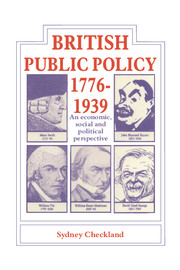Book contents
- Frontmatter
- Contents
- Preface
- Introduction
- Part I Industrialisation and war, 1776–1815
- 1 The state and the proto-industrial economy of Britain
- 2 Core and periphery: England, Wales, Scotland and Ireland
- 3 Social values and social policy
- Part II Assimilating the industrial revolution, 1815–51
- Part III The Victorian apogee, 1851–74
- Part IV Industrial maturity and the ending of pre-eminence, 1874–1914
- Part V Total war and troubled peace, 1914–39
- Bibliography
- Index
3 - Social values and social policy
Published online by Cambridge University Press: 05 August 2012
- Frontmatter
- Contents
- Preface
- Introduction
- Part I Industrialisation and war, 1776–1815
- 1 The state and the proto-industrial economy of Britain
- 2 Core and periphery: England, Wales, Scotland and Ireland
- 3 Social values and social policy
- Part II Assimilating the industrial revolution, 1815–51
- Part III The Victorian apogee, 1851–74
- Part IV Industrial maturity and the ending of pre-eminence, 1874–1914
- Part V Total war and troubled peace, 1914–39
- Bibliography
- Index
Summary
The evangelical injunction, natural law and Benthamism
Throughout the eighteenth century and well into the nineteenth it was the farm worker who dominated the minds of those who thought about the labour force and its behaviour. A view, as expressed by Arthur Young (1741–1820) and others, had gained a strong hold on upper- and middle-class minds, namely that men would only work if they had to, that if the goad of hunger was removed or eased by higher wages, the result would be less work for more money, rather than an increase in output. But against this there grew up an alternative moral perception of the workers. The religious revivals of John Wesley (1703–91) and George Whitefield (1714–70), working upon susceptibilities in the national life that ran back into the seventeenth century and earlier, generated the evangelical movement, widely disseminated among all levels of society. The evangelicals took deeply to heart the injunction of Christ to feed the hungry. Under the impetus of their beliefs, and to a significant degree independent of their class interests, the evangelicals became profoundly concerned for those in poverty, in distress and without defences. A powerful force for the promotion of morality and human sympathy thus came into being. It lay behind the final victory over the slave trade with its abolition in 1806–7, as well as the promotion of penal and legal reform, together with the movements to improve factory conditions and to provide education for the working classes.
- Type
- Chapter
- Information
- British and Public Policy 1776–1939An Economic, Social and Political Perspective, pp. 42 - 57Publisher: Cambridge University PressPrint publication year: 1983



